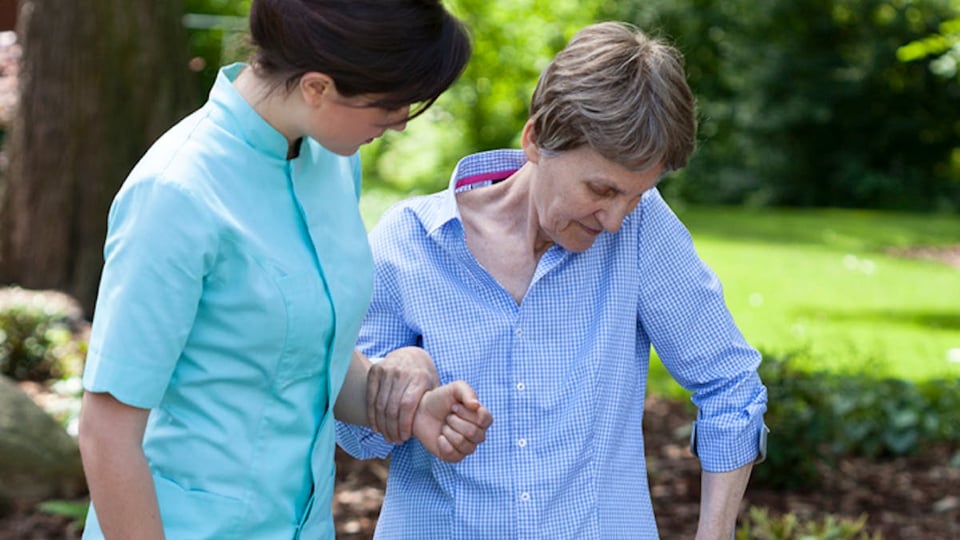Neurological Disorders
Catherine Valentino OTR/L, OTD, BS, MHS
Includes all course content in digital format
Prerequisites Required
Description
This workshop will apply new research on the relationship of cognition in mobility to allow participants to truly develop successful clinical pathways. With the insurance focus on functional outcomes this course will provide a necessary bridge between medical complexities and functional applications. Healthcare providers are now, more than ever, asked to justify the personal meaning behind each episode of care. With this needed shift to more client-centered care is it vital that each clinician understands emerging research and be able to apply this client-centered focus to patients in their care.
The relationship between cognition and movement has always been a complex and intricate one. Creating a foundations course which creates a holistic knowledge base for all clinicians will facilitate better plans of care, client understanding, and interdisciplinary communication which will allow the client to truly receive the best care possible. By developing a clear base of knowledge of not only the conditions, but also the complex relationship between cognition and mobility, participants will be able to create functionally based plans of care and therapy interventions that will be successful and meaningful for each client.
Highlights
- Differentiate the anatomical and physiological understanding of what area of the brain are impacted with a diagnosis of CVA, Parkinson's and Multiple Sclerosis
- Confidently assess your client to develop functional plans of care, interventions, and outcomes
- Practical application and hands-on practice of treatment strategies to promote meaningful improvement and success using creative exercise approaches
- Integrate easy to implement self-care plans to complement treatment techniques
- Implement evidence-based treatments to help with skilled documentation and clinical decision making
Learning Objectives
- Examine the application of anatomy and physiological components associated with cognition and mobility in CVA, Parkinson's disease, and Multiple Sclerosis.
- Apply and correctly interpret the best standardized tests for cognition, ADLs, and mobility in populations impacted byCVA, Parkinson's disease, and Multiple Sclerosis.
- Apply functional evidence-based research to plans of care and treatment methods to promote balance, mobility, and ADL performance outcomes.
- Demonstrate practical understanding and execution of treatment methods tying cognition to mobility.
- Examine how to create a multidisciplinary approach to care while enabling caregivers and families to also participate with focus on activities of choice and daily function.
- Create intrinsically meaningful and functional therapeutic treatments in order enhance quality of life measures for clients with CVA, Parkinson's disease, and Multiple Sclerosis.
Course Content
| Neurological Disorders | SCORM Package | ||
| Next Steps | Module |
- Properly Understand and Manage the Conditions of Progressive Neurological Disorders
- CVA: Common sites and complications
- Parkinson's Disease: Anatomy and progression
- Multiple Sclerosis: Anatomy and progression
- Functional Motor and Cognitive Testing Assessment
- Cognitive assessments
- Motor assessments
- Functional implication and symptom simulation
- Hands-On Lab
- Reviewing and Analyzing the Latest Evidence
- CVA
- Weakness
- Apraxia
- Neglect
- Parkinson's Disease
- Multiple Sclerosis
- Executing Treatment and Exercise Plans to ImproveMobility and Function
- Developing appropriate treatments for various stages of cognitive impact
- Movement strategies to improve fine motor skills
- Therapeutic exercises to improve balance and core strength
- Weight-bearing Techniques
- Aerobic conditioning
- Bracing and splinting
- Locomotor training
- Restorative exercises to improve gait
- Resistance
- Strength
- Balance
- Hands-On Lab
- Designing Effective Self-Care and Home Exercise Plans
- How caregivers and family can get involved
- Developing lasting functional plans
- Family/caregiver education
- Review for Clinical Application
- How to achieve successful outcomes
- Justifying medical necessity
Catherine Valentino OTR/L OTD, MHSc, MAAL, BS, is a licensed Occupational Therapist with an extensive history treating and educating on dementias and neurological disorders. In her clinical experience, she has worked with adult and geriatric populations in various long term, sub-acute, and outpatient settings. Dr. Valentino earned her bachelors in kinesiology before pursuing her master's degree in health sciences and doctorate in occupational therapy. She furthered her specialization by becoming a clinical specialist in core geriatric competencies and earning her National Dementia Instructor certification through CPI. She has been educating across disciplines on the impact of cognitive changes in rehabilitation for the past 4 years, allowing clinicians to develop a comfort level in both medical conditions and developing functional plans of care to successfully meet clients' needs.
DISCLOSURES
FINANCIAL: Catherine Valentino is compensated by Summit as an instructor.
NONFINANCIAL: Catherine Valentino has no nonfinancial relationships to disclose.
Click here to check accreditation for this course.